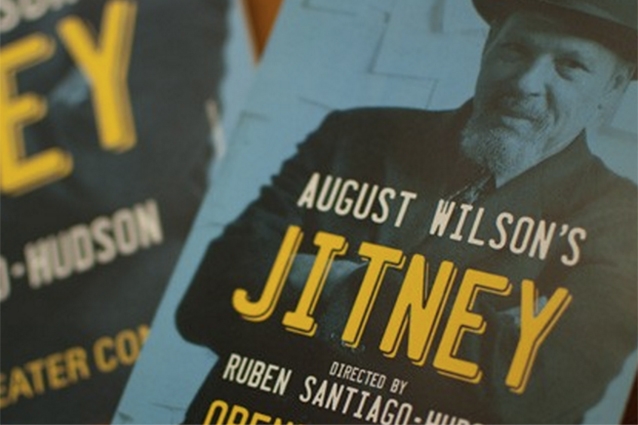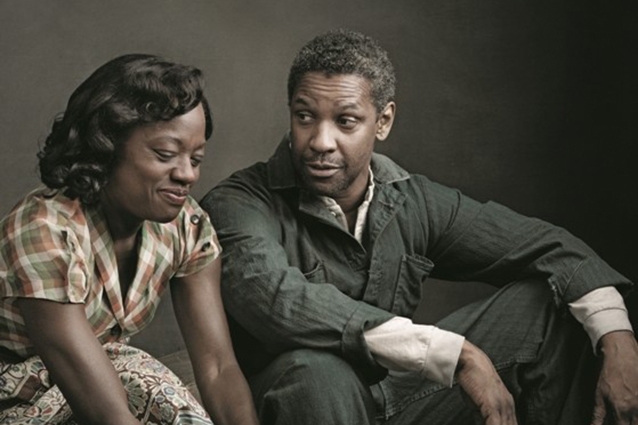 Set in the late 1970’s in the robust and colorfully textured world that is August Wilson’s Pittsburg, “Jitney” is a profound and compelling story about a group of Black men trying to scratch out a living as unlicensed jitney drivers. Threatened by impending gentrification, personal hardships and fractured relationships, Wilson’s first play is a stunning drama about the depths and complexities of Black masculinity.
Set in the late 1970’s in the robust and colorfully textured world that is August Wilson’s Pittsburg, “Jitney” is a profound and compelling story about a group of Black men trying to scratch out a living as unlicensed jitney drivers. Threatened by impending gentrification, personal hardships and fractured relationships, Wilson’s first play is a stunning drama about the depths and complexities of Black masculinity.
Though it was the first play he ever wrote, “Jitney” is the last of Wilson’s plays to make it to Broadway. Ahead of its debut, I got the opportunity to chat with one of Wilson’s finest interpreters, Tony Award winner and director Ruben Santiago-Hudson as well as the majority of the cast. Anthony Chisholm (Fielding), Brandon Dirden (Booster), André Holland (Youngblood), Carra Patterson (Rena), Michael Potts (Turnbo), Ray Anthony Thomas (Philmore) and John Douglas Thompson (Becker) were all in attendance.
The cast and I spoke about August Wilson’s astounding legacy, the myths of Black masculinity, the late ‘70s as a particular time and space for Black people and Black women’s roles in Wilson’s plays.
Aramide Tinubu: Ruben, you’ve done so much with August Wilson’s cannon of work. How does “Jitney” fit in with your personal story?
Ruben Santiago-Hudson: That’s my life, that’s my history, that’s my culture, that’s who I am. We came from the same place. We’re from steel towns with Northern colored people talking about what they were running from and what they were running to. So we found the celebration in who we are as Black people. As Ossie Davis would call it, “The secret gladness of being Black.” This is who I am. I don’t have to do anything but just do my work and be honest, enjoy it and just say [August’s] words, but it’s my life, we had the same life.
AT: So what has this journey been like for you to finally get “Jitney” to Broadway?
RSH: It’s the reason I worked so hard; I promised him that if I had any strength in my body, I would do everything that I could. I never promised him that I could personally do it, but in my hubris, I did say, “I’ll get it done.” Ten years into the battle I thought it would never happen because all I got was rejected. I tried everything I could. I wrote letters; I directed every play. He wrote three roles for me. I did everything in my power to get to the place as a director that was worthy of this opportunity and as a producer and as a stalwart of his work, and all I did was get rejected. Then, Manhattan Theatre Club said, “Come on, let’s dance.” So, I’m humbled proud and appreciative.
AT: What do you think it was about “Jitney” that got August to the place where he found his voice?
RSH: This play was written like in ’79, and it didn’t really get completed until after “Seven Guitars” for a big reason. He cut an hour plus out of “Seven Guitars,” and ninety percent of that is in “Jitney.”
AT: Why do you think this is the only August Wilson play that has never made it to the Broadway stage until now despite the fact that it was his first play?
Ray Anthony Thomas: You know what, I think it’s just fate more than anything. I think it just happened. I don’t think there was any conspiracy or ill will against it.
André Holland: I think it’s about damn time. I first saw the play fifteen years ago in London, and after I saw it I said, “Why has this not been seen?!” Every six months or so I write my agent and say, “Hey, what about “Jitney?” I’d write letters to the National Theatre and say, “Hey! Why don’t ya’ll bring it over here?” So, I’m just grateful especially when I see people like Anthony Chisholm and Ruben. These are legends, so I’m grateful to be a part of it.
Michael Potts: I will say I don’t know why it has taken so long. I think people might have gotten caught up in the characters or the themes in some of the other plays. Like “Ma Rainey’s Black Bottom” for example, lots of people have heard of her; she’s a historical figure. The character in the “The Piano Lesson” is a huge thing in ”Joe Turner’s Come and Gone.” Those are bigger much larger ideas, and this is basically a story about the fraternity of Black men together and this particular jitney station.
Brandon Dirden: It’s kind of biblical isn’t it? The first shall be last. I happened to believe that there are no accidents. I’m not smart enough to understand all of the intricacies of why it took this long to get here, but I’m just grateful to be in the room. I’m grateful to be charged with the responsibility to help tell this story. We’re not the first company to tell this story, and we won’t be the last. We’re just the first on Broadway. Maybe 2016-2017 is the optimum time for the world to receive this play and this message about reconciliation, about love, about hope and about being concerned about what is happening in our communities. I can’t think of a more right time to do this play.
AT: I concur.
BD: I don’t know why it’s taken this long, but I’m glad that we’re here.
Anthony Chisholm: You can’t write stuff better than that. “Jitney” was submitted to Lloyd Richards who was the longest running dean at Yale University. Lloyd kind of discovered August, not to say that he wasn’t going to get discovered anyway. Lloyd rejected “Jitney, ” and it was only ninety minutes long, it was only a skeleton of what was to come. But August vowed when he got the rejection that he was going to write the greatest play that was ever written and that was “Ma Rainey’s Black Bottom.”
John Douglas Thompson: He wrote [“Jitney”] in the late ’70s, so the time frame of the play is when he was writing it. And, somehow the other plays took root if you will as far as being produced and worked on and being brought to Broadway. They were in that kind of a pipeline where somehow “Jitney” got forgotten. But, I think if you look at what the play has done in the regions, why people have such high expectations and why it has such high anticipation, it’s that they have been rooting for it all this time. It’s this play’s time and this play’s chance to complete the cycle, but also to start the cycle all over again.
Continue reading at Shadow and Act.
Image: Manhattan Theatre Club

 Returning to their roles six years after the Tony Award-winning revival of August Wilson’s “Fences” stunned Broadway; Denzel Washington, Viola Davis, and Stephen Henderson are at long last presenting the sixth play in Wilson “Pittsburg Cycle” to film audiences.
Returning to their roles six years after the Tony Award-winning revival of August Wilson’s “Fences” stunned Broadway; Denzel Washington, Viola Davis, and Stephen Henderson are at long last presenting the sixth play in Wilson “Pittsburg Cycle” to film audiences.